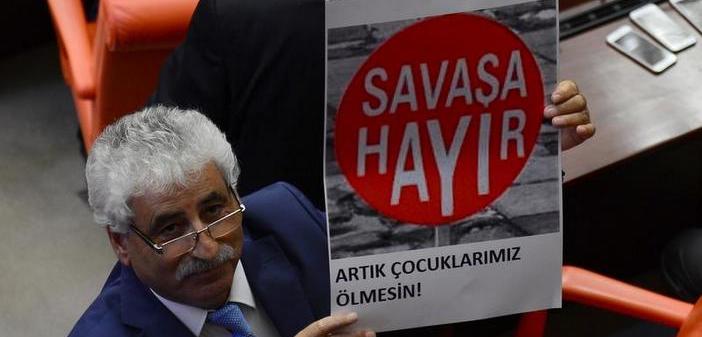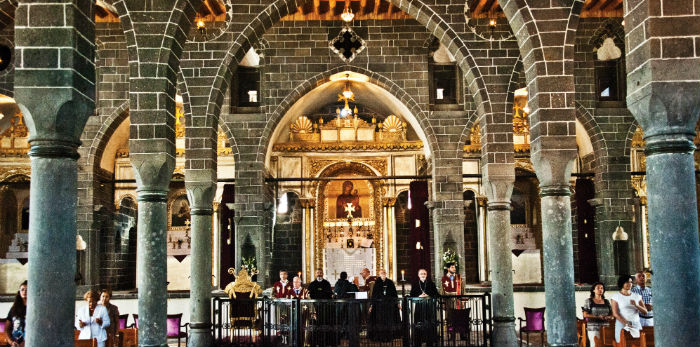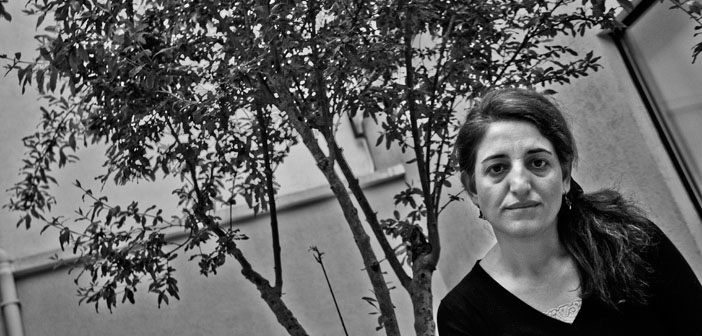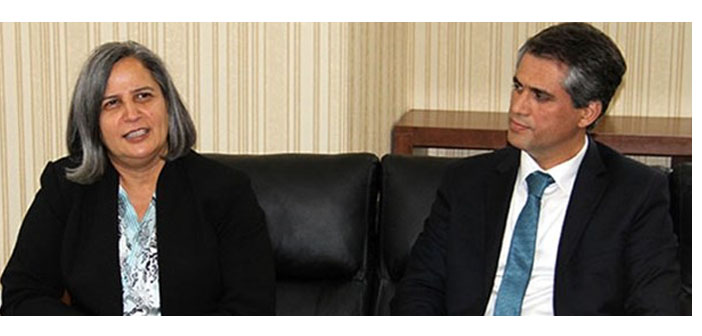Following the Suruç Massacre, and the murder of two police officers in Ceylanpınar, military operations and clashes have resumed. A wave of police operations across Turkey continues. İHD (Human Rights Association) has announced that 41 people lost their lives in the week from 21 to 28 July, and that 1038 people have been detained. Reports of deaths continue to come in every day. President Erdoğan’s demand that the HDP MPs’ parliamentary immunity be lifted has caused further alarm. Human rights organizations and civil society organizations have expressed deep concern regarding recent developments.
UYGAR GÜLTEKİN
GÖZDE KAZAZ
“The essence of the issue is the right to participate in administration”
İHD (Human Rights Association) Chairperson Öztürk Türkdoğan
If the solution process is abandoned, we will enter a period even worse than the 90s. No one would then be able to guess how things will turn out, since the Middle East is a slippery surface. Developments in Syria are not independent from developments in Rojava and Iraq. It is necessary to develop a much broader view. The events of the 90s were partially related to Iraq, but mainly to do with Turkey itself. Now we are witnessing developments that interest Turkey, Syria, Iraq and Iran. Total war means huge devastation. The status quo of a century ago is being dismantled in the Middle East. Yet the rulers of Turkey fail to read the developments.
Saying, “PKK did not disarm, that’s why this happened,” is mere propaganda
The rulers of the State insist on the nation-state model. The resistance they display constitutes an anti-democratic stance. All other examples across the world have shown us that whomever it is you are fighting, you sit down with them and enter a negotiation process. The government does not want negotiations, but wants dialogue, which is another name for wanting to solve the issue alone. Yet the Kurdish side won’t accept that, they say, “If we are going to solve it, let’s do it together”.
Many different people founded the AKP as a political party. Yet today it has become a one-man-party. It is impossible for a party without internal opposition to produce healthy policies.
The Kurdish issue is closely related to Turkey’s democratization. If the solution process can progress, then a new constitution and a new political order will form the new agenda. And political parties defending the old order will be eliminated, that’s the nature of politics. HDP defends a new type of politics, and thus received 13% of the vote. Those who defend the status quo saw this. Saying, “PKK did not disarm, that’s why this happened,” is mere propaganda. So why did you initiate the solution process in the first place? They are trying to fool the people.
Now the people have to decide: A more centralized and rigid system, or a system where powers are delegated to local administrations, a system Öcalan has described as ‘democratic autonomy’? We are witnessing a clash between these two theses. The issue has gone beyond cultural rights; its essence now is the right to participate in administration.
AKP has entered a process of liquidation
Erdoğan is actually shortening the life of his own party for the sake of protecting the status quo. This is a sign that the AKP has entered a process of liquidation. When the AKP was founded, they always said, “New, democratic Turkey”. Now all they say is, “Fighting Turkey, vengeful, religious Turkey”. It is a sad state of affairs.
“The hope of the Kurdish voter base is that Öcalan’s message will reach the public”
MAZLUMDER (Association for Human Rights and Solidarity for the Oppressed) Diyarbakır Board Member Reha Ruhavioğlu
We have observed that the process deteriorated after the Dolmabahçe Consensus. Before that, even if the two sides had complaints, concrete steps were taken. There had been losses from soldiers, guerrillas and civilians before, but the process continued. Yet this time, the murder of two police officers in Ceylanpınar, that the act was carried out by a group called the “Apocu Fedai Timi” [the ‘Apoist (Abdullah Öcalan) Warrior Team] supposedly supported by the PKK spelt the end of the process. Then the KCK stated that it was not the PKK that murdered the police officers. It had already raised eyebrows that two people, who had no direct link to the Suruç massacre, were murdered by methods not normally associated with the PKK. However, both sides now appear to have accepted the end of the process in practice. It no longer matters whether the Ceylanpınar attack was carried out by the PKK.
No one in Diyarbakır wants to say the process has ended, but two police officers were killed in town, and fighter jets departing from Diyarbakır continue to bomb the PKK; and that means the relatives of these people, after all. There is genuine concern in the city. The hope of the Kurdish voter base is that Öcalan’s message to ‘halt clashes’ will reach the public via the hands of the İmralı delegation.
There are signs that not only the PKK and the State, but also groups like Hizbullah, ISIS and Al Nusra are being drawn into the clashes. We, as rights organizations following the solution process closely, asked that it was carried out in a transparent manner, and on a legal platform. In the last week we saw how efforts carried out over two-and-a-half years can come to nothing and be wasted way in a moment.
“The real reason is Syria”
Diyarbakır Bar Association President Tahir Elçi
When things seemed to be fine for both sides, and when Öcalan and Kurdish political leaders were about to summon a congress for disarmament and an end for 30-years of clashes, suddenly, and especially because of President Erdoğan’s incomprehensible stance and statements, everything went awry. A historical opportunity was wasted.
The real reason is the developments in Syria. After the alliance between coalition forces and the PYD, and especially after the uniting of the Kobani and Cizre cantons, they saw a danger in the establishment of a Kurdish region under the PYD’s control. Tension with the US was defused, and another path was chosen. The President dropped his statements accusing the US. It appears that Syria was the issue that ended the solution process.
The Kurdish political movement has to be very careful. A great opportunity has appeared in Rojava, the world has expressed sympathy for the war against ISIS, a great democratic success and power has been acquired and a strong parliamentary group with 80 MPs has been formed. The circumstances require much greater care.
We can’t say we’re back in the 90s yet, but there is an extraordinary atmosphere. There are checkpoints at the entrances of all cities in the region, and the public is highly concerned.





